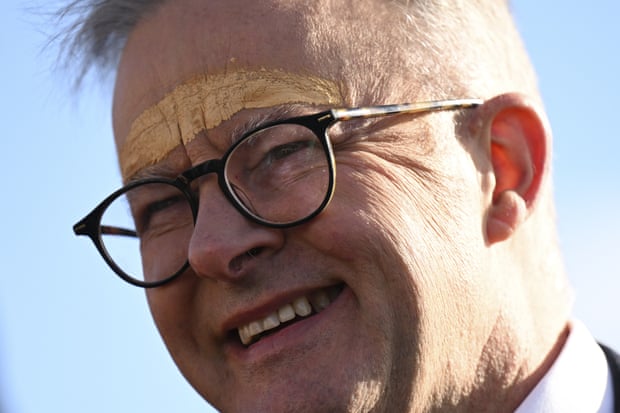Extract from The Guardian

Scott Morrison wasn’t there. His absence was probably for the best, because the style of politics that Morrison personified was repudiated in myriad ways.
Morrison famously invented “the Canberra bubble” – an antipodean echo, or homage, to Donald Trump’s Washington “swamp”.
The bubble was a means of devaluing his own profession of politics and casting himself as faux outsider salvation: in it, but above it.
The bubble was Morrison’s sword, shield and safety deposit box; superficially, an inane talking point, but substantively about shrinking the institutions and traditions that might admonish or constrain prime ministerial impulse.
You’ll recall that during the Morrison epoch, routine deliberation was often boring, process-obsessed “bubble stuff”, and accountability was often nit-picking, irritating bubble stuff.
This week, Anthony Albanese set about popping Morrison’s bubble.
Australia’s new prime minister began the task early on Tuesday at the welcome to country ceremony that kicked off the opening of the new parliament. Albanese tried to reclaim some nobility for his vocation by pointing out politics was about more than tactics.
At its best, politics, the humanist business, was about soul, he seemed to suggest. Politics was about progress. It was about justice. It was about decency. In the span of time between him being a kid in public housing in inner-city Sydney and becoming prime minister of Australia, there had been the 1967 referendum, Mabo, the apology to the Stolen Generations, and the requirement that new parliaments open with a welcome to country.
The unfinished business now, Albanese said, was the Uluru statement. His old friend Linda Burney would take the country on the next leg of the journey towards reconciliation. The prime minister’s eyes brimmed as he visualised an opportunity of capturing power for a purpose.
Politics, at least the part about winning and losing contests, is also about contrast. Albanese knew full well that Peter Dutton would be constrained by his party room in what he might be able to say on the opening day of the 47th parliament about the next chapter of reconciliation.
Albanese knew that contrast would serve his point about big-picture political leadership being the quality that allows institutions and cultures to turn a corner. As goes the adage: show, don’t tell.
On the opening day of the new parliament, he visualised how it would be when the season of his prime ministership ended. He forced himself to summon the spectre of regret waiting for him at the end of that road.
This could have been rampant egoism, or indulgence, conjuring the miserable ghost of thwarted prime ministers. But on Tuesday, it was motivation. Albanese thinks three steps ahead as a means of gaining clarity in the present.
When public life ends, Albanese said, “when you are sitting on the porch, thinking about what you did, you can either have a source of pride, or a source of regret. There’s no middle path. Make it a source of pride”.
So the mantra of the 47th parliament was set: politics is about doing things. Morrison’s politics, contrived in intra-day tactics, hewn in focus groups, was largely about stopping Labor from doing things. That era had now ended. It was time to elevate, time to renew the institutions that are ramparts of Australian democracy.
Albanese then carried his modest renewal project into the House of Representatives, where he welcomed the new Speaker of the chamber. “When I got here, being a dork of parliamentary and political processes, I actually read the standing orders,” the prime minister told the chamber.
“That’s how rules are made. Indeed, that is how laws are made in this country. And it is important that this parliament operates in a way that brings pride to people.”
Albanese pointed out that around the world “people stand in front of tanks to try to get the right to vote”. What Australians were witnessing on Tuesday, the prime minister noted, was an enduring miracle: the orderly transition of power without violence.
Given people put their lives on the line for representative democracy, perhaps politicians, the custodians of important traditions, could get about restoring some dignity to public life.
Beginning on Wednesday, when the daily combat of the next three years begins, we’ll see if the substance – politics with purpose – lines up with the aspiration.
No comments:
Post a Comment